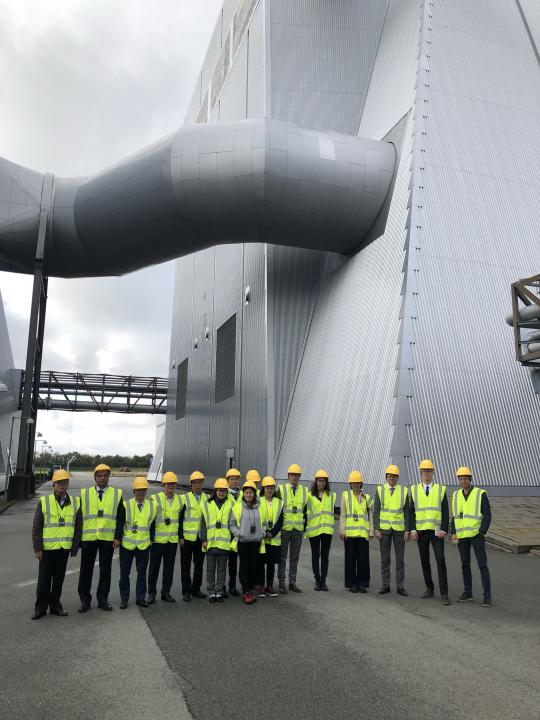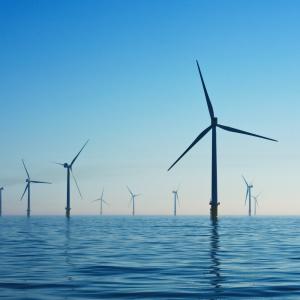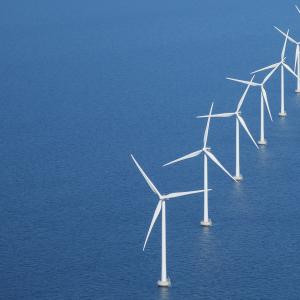Vietnam is poised to develop offshore wind energy and looks to Denmark for inspiration
Together, the Danish Energy Agency and the Vietnamese Electricity and Renewable Energy Authority (EREA) are going to map Vietnam’s potential for offshore wind. The Southeast Asian nation needs to invest billions in its future energy production to accommodate growing national demand. A high-level Vietnamese delegation is currently on a study tour to the birthplace of offshore wind to seek inspiration from Danish solutions and competencies.
The Danish Energy Agency (DEA) and the Electricity and Renewable Energy Authority (EREA) of Vietnam have initiated a partnership with the purpose of mapping the potential for offshore wind off the coast of Vietnam. Presently a Vietnamese delegation is visiting Denmark to seek inspiration from Danish competencies and solutions within offshore wind, energy planning and energy efficiency. The Vietnamese main land has a coastline of 3.260 km and especially the sea east of Ho Chi Minh City is considered one of the areas in South East Asia with greatest potential for offshore wind.
Vietnam is the 14th most populous country in the world. With yearly economic growth rates above 6%, the republic has also experienced a large increase in its national energy consumption. This has entailed a massive expansion of fossil fuel, and Vietnam’s CO₂ emissions from energy has almost septuplet from 1994 to 2004. To accommodate the increasing energy demand Vietnam needs to invest billions in its future energy production, and in order to reduce global greenhouse gas emissions, it is crucial that growth economies like Vietnam decide to invest in green instead of black technology.

Study tour in Denmark
The delegation, led by General Director Phuong Hoang Kim of EREA, is traveling around Denmark visiting the Danish Energy Agency and Energy Lab in Copenhagen, the Avdedøre plant, test facilities at Lindø Offshore Renewables Center in Munkebo, Siemens-Gamesa Renewable Energy in Brande, Energinet in Fredericia and the offshore hub at Esbjerg Harbor.
Next step in the cooperation between DEA and EREA will be to develop a roadmap to Vietnamese authorities presenting solutions on how to kick start offshore wind in the coming years. The results will be presented at a workshop in Hanoi before summer 2020. Therefore, the study tour program has a strong focus on the most important aspects within energy efficiency, energy planning and offshore wind, including research and development, regulation and planning, production of wind turbines and administration of large-scale wind farms.

The Danish-Vietnamese energy partnership programme
The delegation’s visit is a part of a broader cooperation between authorities in Denmark and Vietnam, which from the Danish side, is administered by the Centre for Global Cooperation in the Danish Energy Agency. In recent years, the cooperation has been focusing on energy efficiency, integration of renewable energy sources and long term planning and modelling. Now it also includes offshore wind energy. Most recently, an energy seminar was organized in Ha Long City with members of the Vietnamese Parliament, including the Vice Chairman of the Science Committee, which focused on Vietnams green transition and targets within renewable energy and energy efficiency in connection with the Sustainable Development Goals.
With the publication of the Vietnam Energy Outlook Report 2019 (EOR19) on 4 November, the cooperation on energy modelling will reach a significant milestone. The EOR19 presents scenarios on how the Vietnamese energy sector can develop in a more green and cost-effective direction. The launching ceremony takes place in Hanoi on 4 November with participation from the Permanent Secretary of the Danish Ministry for Climate, Energy and Utilities (MCEU), Morten Bæk.
More on the cooperation
- The Danish-Vietnamese energy partnership is financed by the Danish Climate Envelope and administered by the Danish Energy Agency.
- The Danish Energy Agency’s Centre for Global Cooperation partners with 15 other countries, who in combination account for more than 60% of global CO₂ emissions, and share Danish experiences on shaping an energy system that combines a green, low-carbon and reliable energy supply with economic growth.
- Cooperation with Vietnam started in 2013 and now focuses on supporting Vietnam in attaining its ambitions under the auspices of the Paris Agreement and the United Nation’s Sustainable Development Goals for energy and climate.
Contact
Søren Storgaard Sørensen, +45 3392 6765, ssts@ens.dk
Nadeem Niwaz, +45 3395 5808, nni@ens.dk


